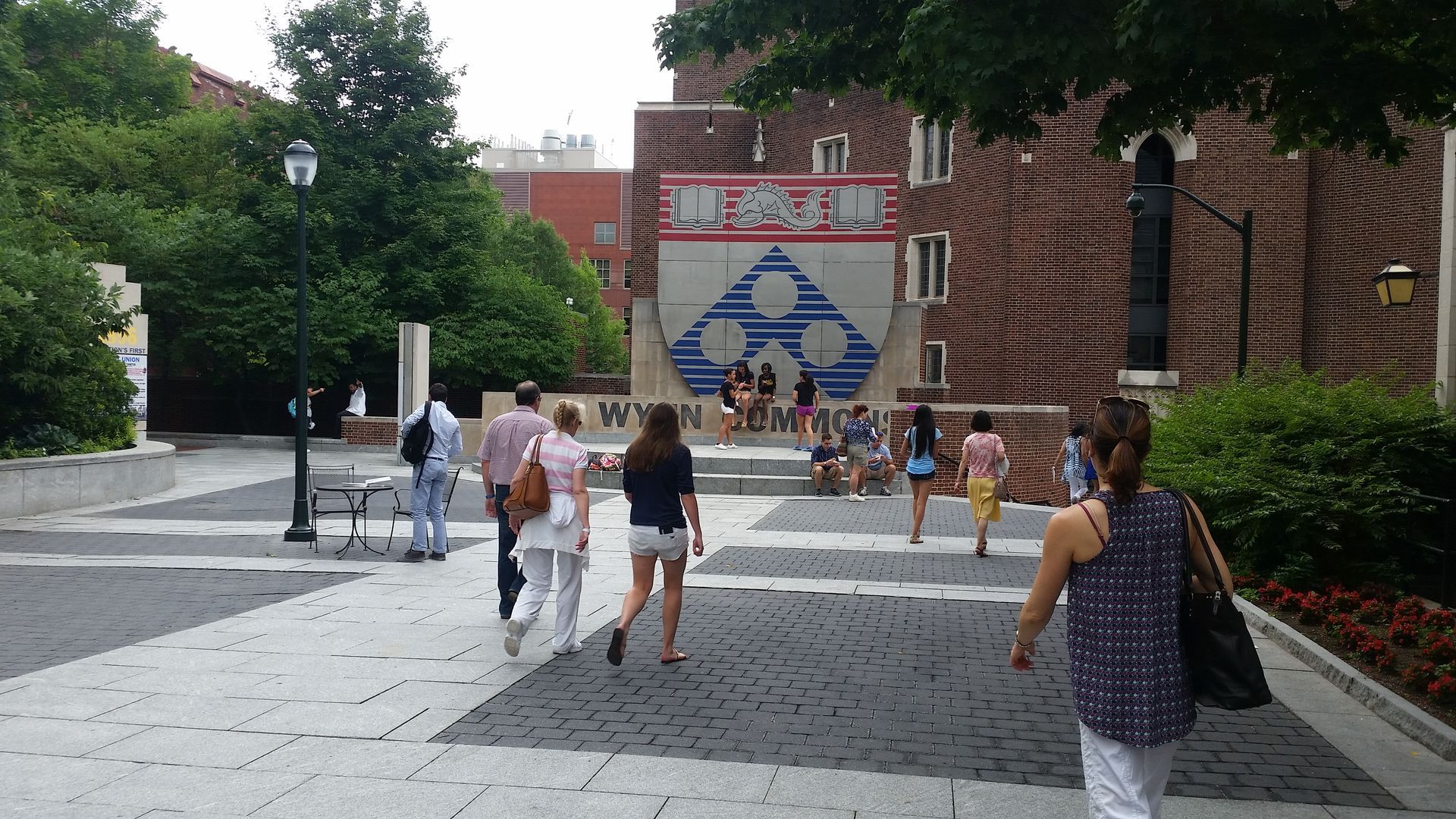May 31, 2025
In most social circles, students planning to go to college are pushed to attend the most prestigious college or university that will admit them. Students spend hours pouring over school rankings like those presented each year by U.S. News & World Report. “Can I get into the #5 school over the #10 school?” becomes an existential question that keeps kids up at night. But what if you’re one of the 70% of college applicants planning a career that involves grad school? What to be a scientist and do research? You’ll need a PhD. What to go into the health fields? Almost all career choices where you’re actually treating patients require advanced degrees. All told, nearly 40% of undergraduates will continue on to a grad-school program after completing their college degrees. Prestigious colleges often come with huge price tags. If you’re not careful, you could end up with so much debt after graduation you can’t maintain a decent standard of living. As a high school junior looking at colleges, how do you game the system to get you through college and a graduate program? The single most important factor that you have control over is the cost of your college programs, especially at the undergraduate level. Even if your family has saved money for your education, it makes a lot more sense to reserve some of that money for your graduate program where you may be attracted to higher-priced schools by unique educational opportunities or employment considerations. At least for your undergraduate degree, you should be looking to create a list of value colleges. A “value college” is one that offers you a quality education at a reasonable cost. Note that “reasonable cost” is not the university’s published cost of attendance. That’s like the sticker price on a car – no one pays that! Instead, reasonable cost is based on the net price you’ll pay after grants and scholarships. You can get a ball-park estimate of the net price you may pay at any college by using their Net Price Calculator, which colleges are required to post these on their websites. This does not mean you are stuck in a public, state-school program (although many state and state-related schools offer very high quality educations)! It does mean that your college list should be heavy on schools where you’re most likely to get the highest merit aid awards to reduce your net cost of attendance, leveraging your good grades in high school to a great deal at college. As an example, a 4.0 weighted GPA may get you a spot on main campus at Penn State your freshman year, which will cost you $50,400 this September. You could use those same great grades to get a full tuition scholarship to Temple University, a savings of $24,368, for a net cost of $17,690. That’s $32,700 less than attending good old PSU! Multiply that by 4 years, and you’re saving over $130,000! Of course, not everyone achieves a 4.0 GPA, but merit scholarships can start to kick in at GPAs as low as an unweighted 2.7 at many private schools like Rider University, where a full-tuition, Presidential scholarship requires a GPA of only 3.5. So how about that graduate degree? Choosing a value college for your undergraduate degree gave you more financial flexibility when you chose your graduate program. If you decide you need to attend a more expensive graduate program because it offers you unique educational options or future job opportunities, you’re in a better position to afford the more-expensive graduate program. But if you’re like most people, you can still use the value college approach to creating your list of graduate programs. The first year of a Wharton MBA program will cost $120,960, including room and board. A similar MBA program at Pitt’s Katz School of Business will only cost you $49,444 if you live in Pennsylvania. How much of a boost will you get from Wharton (ranked #5 by Forbes) than you will from Katz (ranked #37)? Probably not more than the $140,000 extra you’ll pay for the Wharton MBA, especially if that $140K is financed. So what’s the sweet spot for maximizing merit scholarship awards? Most colleges use complicated algorithms to develop their class lists. The boxes where they give the highest scholarships can include several factors, including academics, extracurriculars and achievements. GPAs are the best tool to predict which schools might offer you the most merit aid, because the information is most accessible. GPAs are important statistics for colleges. They affect rankings and the ability to attract quality students. GPAs below average reduce average rankings; GPAs that are too much higher than average are great, but students that are overqualified for a school are less likely to actually matriculate. The sweet spot for schools is generally between the 60th and 80th percent of their applicants. To maximize your chances of getting financial aid, your school list should be heavy on schools where your GPA falls within this range. Many schools are now test optional, but SAT or ACT scores that support your GPA or better can also increase your chance of acceptance and scholarships. Sometimes, it’s not about the grades. If Luther College, which is very big on music, needs a French Horn player for their orchestra and you happen to have gone to States for French Horn, you’re likely to get an offer with a good amount of money. But, but, but – that USNWR top-school rating! Relax! Your chance of getting into a good grad school isn’t dependant on your school’s undergraduate ranking, it’s dependant on how well you did while you were at school. Wharton MBA students are as likely to come from Iowa State as they are from Carnegie Mellon, but they all have one thing in common: they excelled in their class work and made a name for themselves at school. When you take a step back and look at the big picture, a quality education at a reasonably priced “value school” will leave you in a position to enjoy a financially secure and productive future. Choosing value schools, based on net-price-calculators and appropriate GPA ranges, to build your list of colleges will give you the best chance of choosing between a number of schools that offered you a great education at a very reasonable price.






